
Miquelon: The Hidden Gem of the North Atlantic
Miquelon is a quaint and charming island located in the North Atlantic, part of the French overseas collectivity of Saint Pierre and Miquelon. This serene destination offers visitors a unique blend of French culture and North American wilderness. Miquelon is the perfect escape for those looking to experience a slower pace of life, with its picturesque landscapes, friendly locals, and rich history. Nature lovers will find Miquelon a paradise with its vast stretches of unspoiled beaches, lush meadows, and diverse wildlife. The island is home to an array of bird species, making it a haven for birdwatchers. Hiking trails crisscross the island, offering stunning views of the rugged coastline and rolling hills. The island's unique geography, with its sandbars and lagoons, is a sight to behold and offers numerous opportunities for outdoor activities such as fishing and kayaking. Miquelon’s small village exudes a charming, old-world atmosphere with its brightly colored houses and narrow streets. The local cuisine is a delightful fusion of French and Acadian flavors, with seafood playing a prominent role. Visitors can indulge in freshly caught lobster, scallops, and other seafood delicacies at the island’s cozy restaurants. The island also has a fascinating history, with remnants of its past as a fishing and smuggling hub visible in the local museum and historic sites. Exploring Miquelon offers a unique glimpse into a way of life that has remained largely unchanged for centuries.
Local tips in Miquelon
- Visit in the summer months (June to August) for the best weather and to experience local festivals.
- Bring binoculars for birdwatching; the island is home to many unique species.
- Try the local seafood; restaurants serve fresh catches daily.
- Rent a bike to explore the island at your own pace.
- Pack layers, as the weather can change quickly.
- Learn a few basic French phrases; while many locals speak English, French is the official language.
Miquelon: The Hidden Gem of the North Atlantic
Miquelon is a quaint and charming island located in the North Atlantic, part of the French overseas collectivity of Saint Pierre and Miquelon. This serene destination offers visitors a unique blend of French culture and North American wilderness. Miquelon is the perfect escape for those looking to experience a slower pace of life, with its picturesque landscapes, friendly locals, and rich history. Nature lovers will find Miquelon a paradise with its vast stretches of unspoiled beaches, lush meadows, and diverse wildlife. The island is home to an array of bird species, making it a haven for birdwatchers. Hiking trails crisscross the island, offering stunning views of the rugged coastline and rolling hills. The island's unique geography, with its sandbars and lagoons, is a sight to behold and offers numerous opportunities for outdoor activities such as fishing and kayaking. Miquelon’s small village exudes a charming, old-world atmosphere with its brightly colored houses and narrow streets. The local cuisine is a delightful fusion of French and Acadian flavors, with seafood playing a prominent role. Visitors can indulge in freshly caught lobster, scallops, and other seafood delicacies at the island’s cozy restaurants. The island also has a fascinating history, with remnants of its past as a fishing and smuggling hub visible in the local museum and historic sites. Exploring Miquelon offers a unique glimpse into a way of life that has remained largely unchanged for centuries.
When is the best time to go to Miquelon?
Iconic landmarks you can’t miss
Le Feu de Braise
Savor the authentic taste of pizza at Le Feu de Braise, a beloved Saint-Pierre restaurant offering a cozy atmosphere and delicious culinary creations.
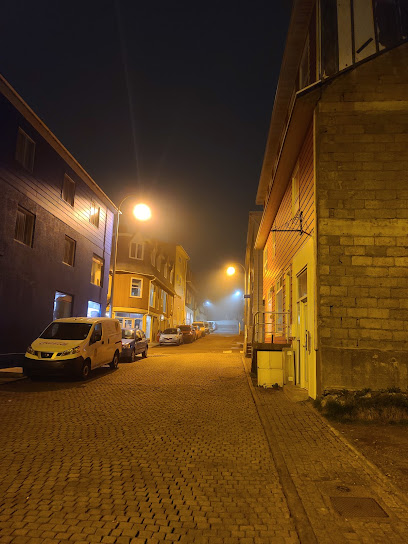
Les P'tits Graviers
Discover the authentic taste of St. Pierre & Miquelon at Les P'tits Graviers, where local flavors and warm hospitality create an unforgettable dining experience.
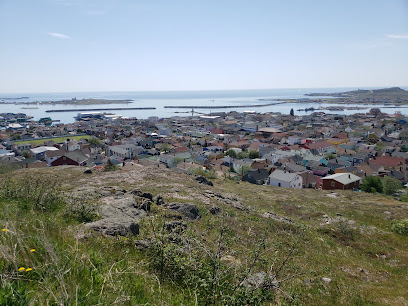
Hotel Robert
Experience the perfect blend of comfort and local charm at Hotel Robert in Saint-Pierre, St. Pierre & Miquelon, your ideal base for island exploration.

Island Inn
Discover the charm of Miquelon at Island Inn, where comfort meets stunning natural beauty for an unforgettable stay.
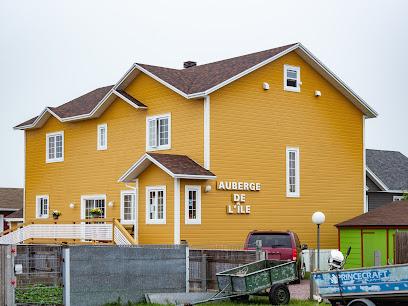
Le Select
Discover the flavors of St. Pierre at Le Select, a restaurant celebrating local cuisine and exceptional service in a cozy setting.
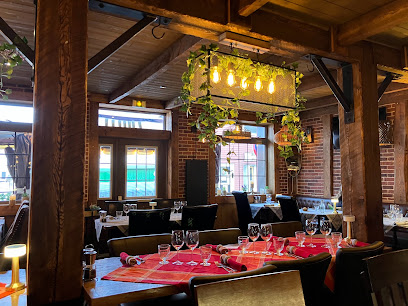
Ark Museum
Explore the rich history of St. Pierre & Miquelon at the Ark Museum, a national treasure showcasing captivating exhibitions and archives.
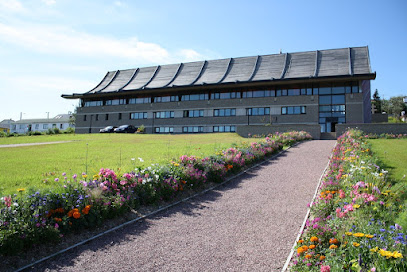
Auberge Saint-Pierre
Experience the charm of St. Pierre & Miquelon at Auberge Saint-Pierre, a cozy inn offering warm hospitality and cultural immersion.
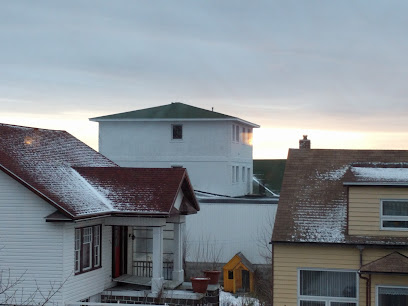
Complexe Hôtelier Les Terrasses du Port
Discover unparalleled luxury and wellness at Les Terrasses du Port, your perfect retreat in St. Pierre & Miquelon, blending comfort with stunning coastal views.
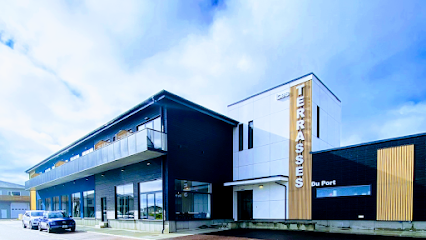
Heritage Museum
Explore the rich history and culture of St. Pierre & Miquelon at the Heritage Museum, where local traditions come to life through engaging exhibits.
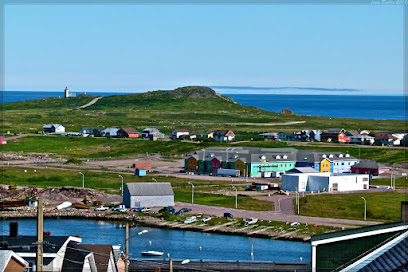
Ile Miquelon
Discover the charm of Île Miquelon, where French culture meets stunning natural beauty in a tranquil island paradise.

Auberge Quatre Temps
Experience the charm of St. Pierre & Miquelon at Auberge Quatre Temps, your cozy retreat in the heart of Saint-Pierre.
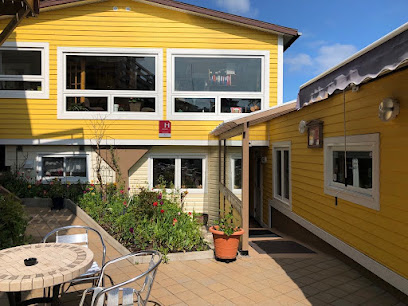
Nuits Saint-Pierre, Hôtel Unique
Discover the charm of St. Pierre & Miquelon at Nuits Saint-Pierre, a stylish hotel offering comfort and breathtaking coastal views.
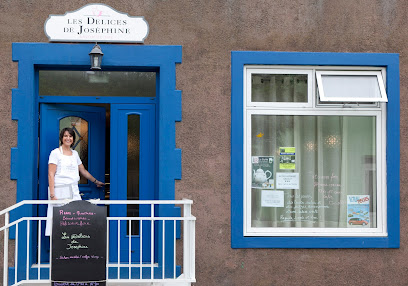
2 Lapins
Experience the charm of 2 Lapins in Saint-Pierre, a cozy coffee shop offering delightful brews and light meals in a welcoming atmosphere.
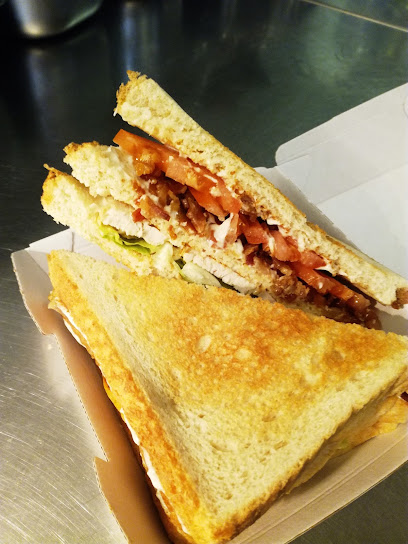
Entre Nous Restaurant
Experience the essence of France at Entre Nous Restaurant in Miquelon, where exquisite cuisine meets vibrant nightlife in a charming atmosphere.
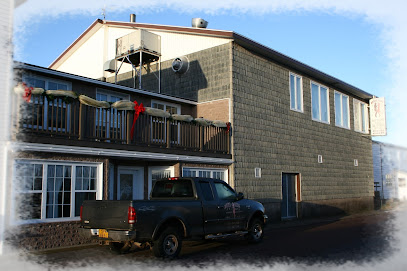
CHEZ MARIE JO
Experience the warmth and charm of Saint-Pierre at Chez Marie Jo, your perfect bed and breakfast getaway in St. Pierre & Miquelon.

Unmissable attractions to see
Ark Museum
Explore the Ark Museum in Saint-Pierre to uncover the rich history and vibrant culture of St. Pierre & Miquelon through engaging exhibits and artifacts.
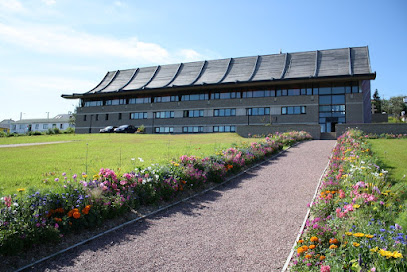
La Pointe aux canons et le phare
Experience the breathtaking beauty and historical significance of La Pointe aux Canons and its iconic lighthouse in Saint-Pierre & Miquelon.
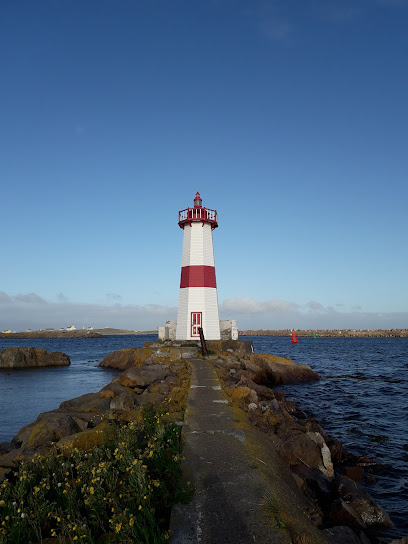
Cap Blanc Lighthouse
Explore the iconic Cap Blanc Lighthouse in St. Pierre & Miquelon, a stunning blend of history, breathtaking views, and serene coastal beauty.
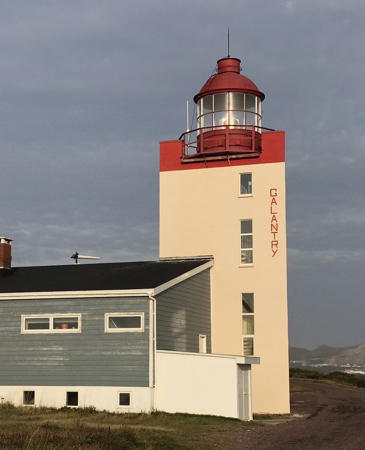
Essential places to dine
Le Feu de Braise
Discover Le Feu de Braise: A premier pizza restaurant in Saint-Pierre offering delightful flavors and a cozy atmosphere.
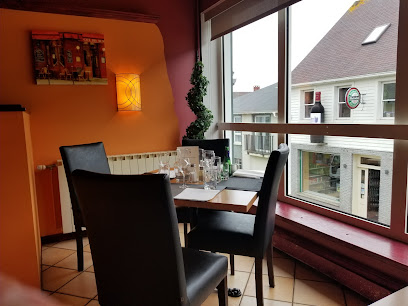
Les P'tits Graviers
Experience exquisite local cuisine at Les P'tits Graviers in Saint-Pierre – where every dish tells a story of flavor and tradition.
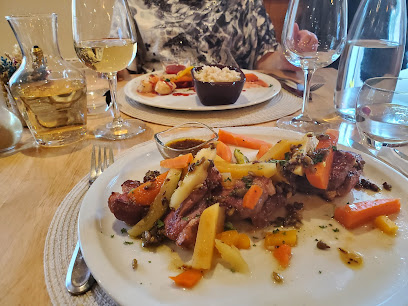
Hotel Robert
Discover warmth and comfort at Hotel Robert in Saint-Pierre – your perfect base for exploring St. Pierre & Miquelon's enchanting landscapes.

Bar Le Rustique
Experience the warmth and charm of Bar Le Rustique in Saint-Pierre – your perfect retreat for drinks and local culture.
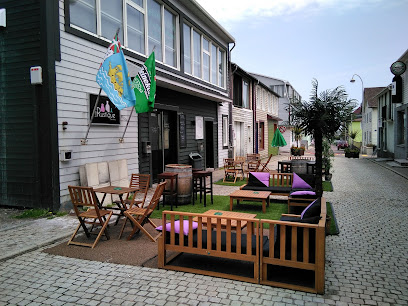
Island Inn
Discover tranquility at Island Inn, a cozy lodge nestled in the stunning landscapes of Miquelon—your gateway to relaxation and adventure.
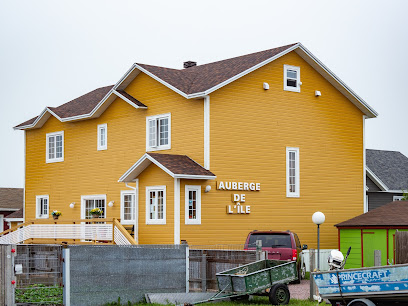
Le Select
Experience exquisite dining at Le Select in Saint-Pierre - where local flavors meet exceptional service for an unforgettable culinary journey.
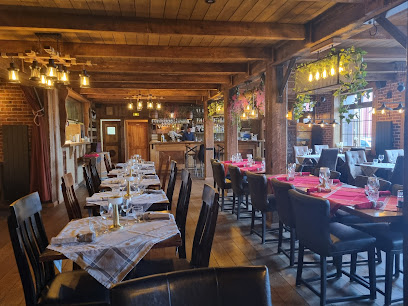
Ark Museum
Explore the Ark Museum in Saint-Pierre: A Journey Through St. Pierre & Miquelon's Rich Cultural Heritage.
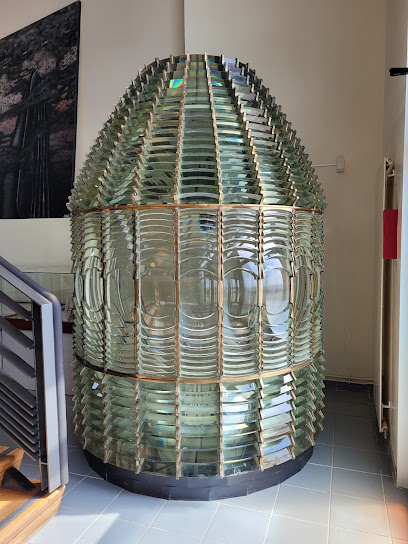
Auberge Saint-Pierre
Discover the charm of Auberge Saint-Pierre, your cozy haven in St. Pierre & Miquelon offering comfort amidst stunning coastal views.
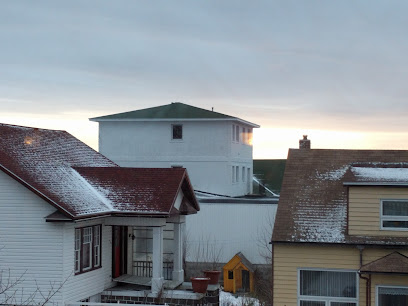
Complexe Hôtelier Les Terrasses du Port
Discover luxury and relaxation at Complexe Hôtelier Les Terrasses du Port - your ultimate retreat in Saint-Pierre & Miquelon.
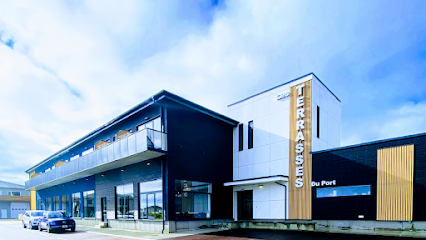
Snack Bar-to-Choice
Discover the culinary treasures of Miquelon at Snack Bar-to-Choice, where local flavors meet inviting hospitality.
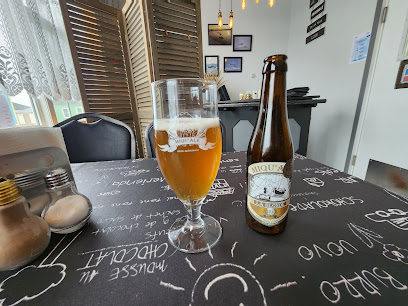
Café de la gare
Discover authentic flavors at Café de la Gare in Saint-Pierre—where local cuisine meets warm hospitality.
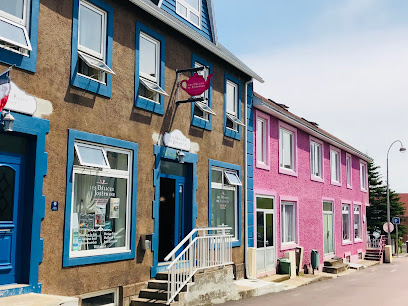
Auberge Quatre Temps
Experience the charm and comfort of Auberge Quatre Temps in St. Pierre & Miquelon – your cozy retreat for exploring French heritage and natural beauty.
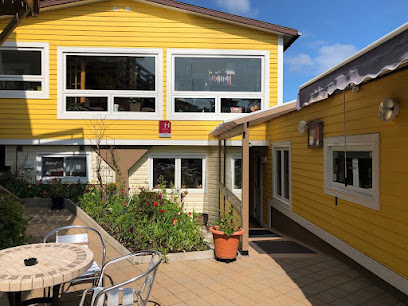
Nuits Saint-Pierre, Hôtel Unique
Experience unparalleled comfort at Nuits Saint-Pierre, Hôtel Unique – your gateway to exploring the breathtaking landscapes of St. Pierre & Miquelon.
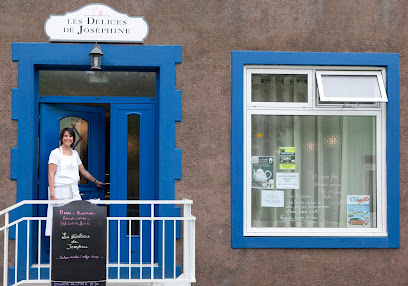
2 Lapins
Discover local flavors at 2 Lapins in Saint-Pierre – where delightful cuisine meets warm hospitality.
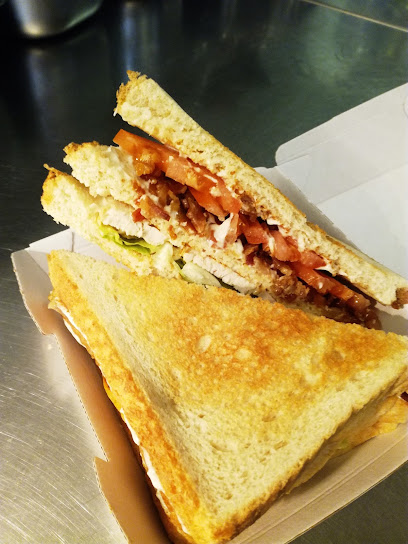
Entre Nous Restaurant
Experience authentic French cuisine at Entre Nous Restaurant in Miquelon - where exquisite dining meets vibrant nightlife.
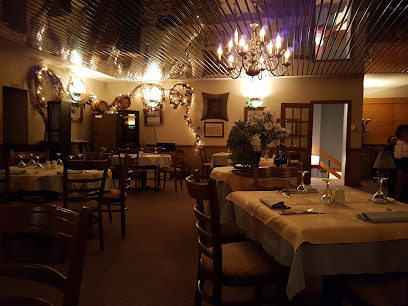
Markets, malls and hidden boutiques
Centre de Rénovation Marcel Dagort S.A.R.L.
Explore a comprehensive selection of renovation tools and materials at Centre de Rénovation Marcel Dagort S.A.R.L. in Saint-Pierre Et Miquelon.
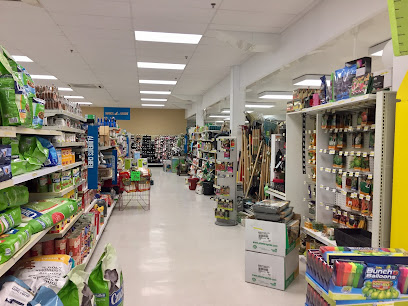
Nuits Saint-Pierre, Hôtel Unique
Experience the comfort and charm of Nuits Saint-Pierre, Hôtel Unique in the picturesque Saint-Pierre, your gateway to the beauty of St. Pierre & Miquelon.
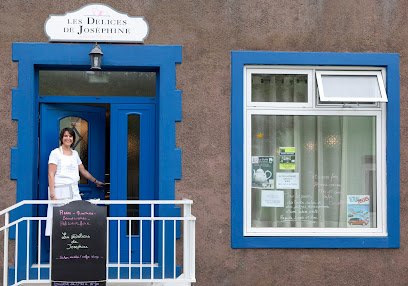
Chez Julien Butcher and Grocery Store
Discover local flavors at Chez Julien Butcher and Grocery Store in St. Pierre, offering a wide variety of fresh and quality products.
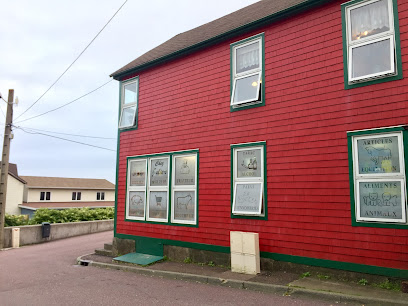
Chez Clochet
Discover the charm of Chez Clochet, Saint-Pierre's beloved general store offering local goods, souvenirs, and a taste of island culture.
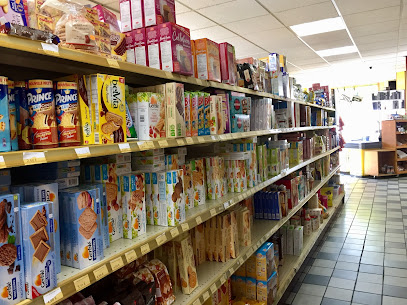
Chez L'tournel
Experience authentic St. Pierre flavors at Chez L'tournel, the go-to grocery store for local products and unique culinary treasures.
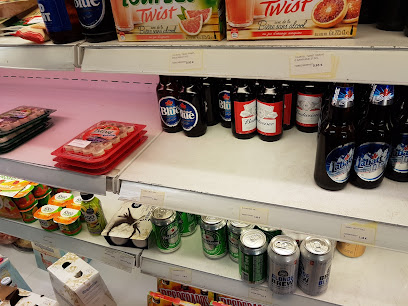
Claude Gautier Groceries
Explore the delightful offerings of Claude Gautier Groceries, where local flavors and fresh produce meet in the heart of Saint-Pierre.
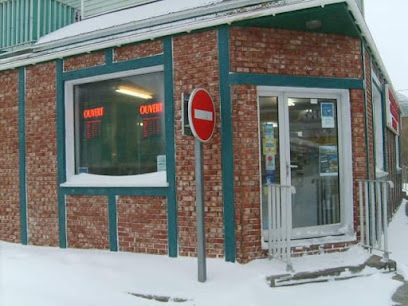
Ré-Créations - Parfumerie & Cadeaux
Discover unique fragrances and charming gifts at Ré-Créations, the premier gift shop and perfume store in scenic Saint-Pierre.
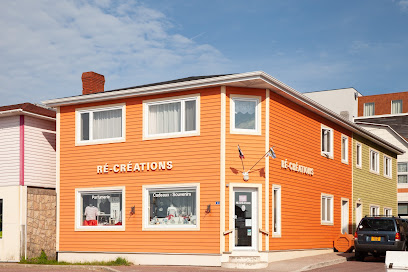
Au Panier Boréal Sas
Discover the authentic flavors of St. Pierre & Miquelon at Au Panier Boréal, where local organic produce meets artisanal craftsmanship.
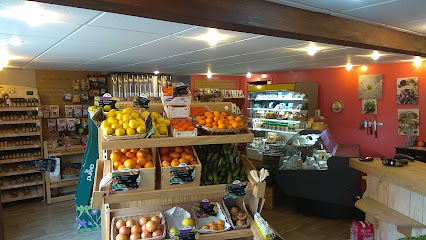
The Cellar pulls plug
Explore The Cellar in Saint-Pierre, your destination for an exquisite selection of wines and local culinary delights.
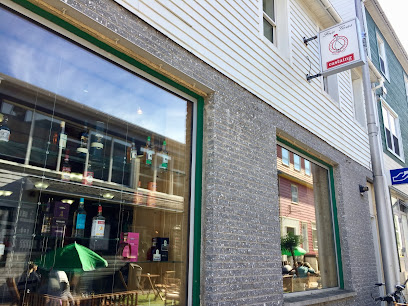
Victoire&Léon
Discover the finest clothing and accessories for all ages at Victoire&Léon, a vibrant fashion boutique in Saint-Pierre, St. Pierre & Miquelon.
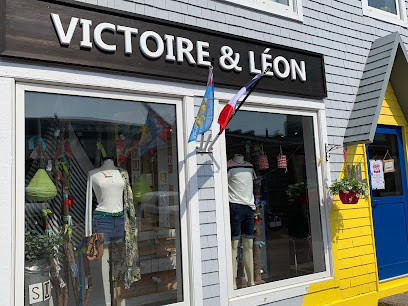
Chasse et Pêche SPM
Experience the thrill of hunting and fishing at Chasse et Pêche SPM, your go-to gun shop in Saint-Pierre, St. Pierre & Miquelon.

Bernie's
Explore the flavors of St. Pierre & Miquelon at Bernie's, your go-to grocery store for local and international products in Saint-Pierre.

Épicerie fine 4 épice
Discover gourmet delights and local specialties at Épicerie Fine 4 Épice, a must-visit gift shop in the heart of Saint-Pierre.
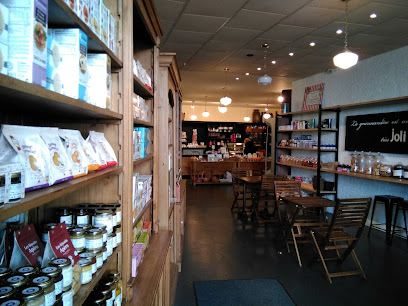
Simon Detcheverry SAS
Explore Simon Detcheverry SAS in St. Pierre & Miquelon for unique local products and souvenirs that embody the spirit of this enchanting archipelago.
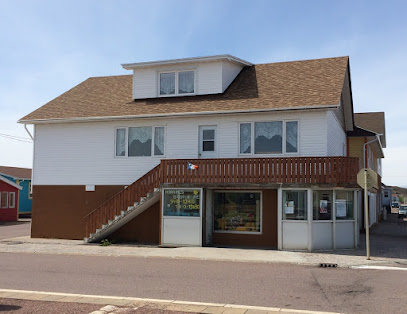
Indigo Déco - Indigo Jouets
Discover the charm of Indigo Déco in Saint-Pierre, where quality furniture meets enchanting toys for all ages.
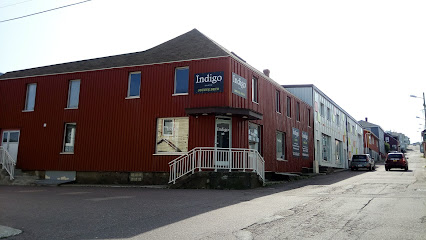
Essential bars & hidden hideouts
Le Feu de Braise
Discover the rich flavors of Le Feu de Braise, where gourmet pizzas and local charm come together in Saint-Pierre.
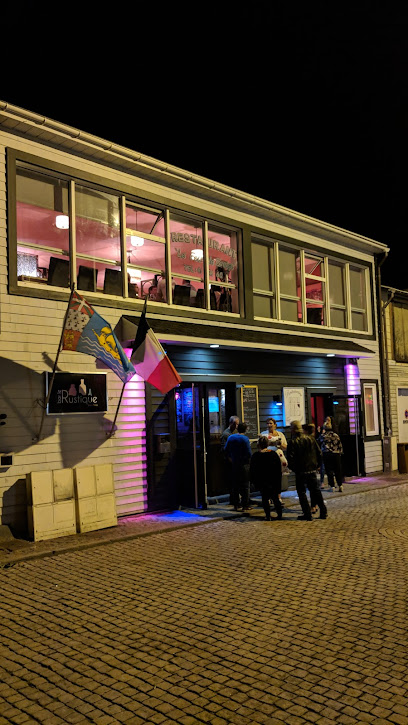
Les P'tits Graviers
Discover the taste of St. Pierre & Miquelon at Les P'tits Graviers, where local ingredients meet culinary creativity in a cozy setting.
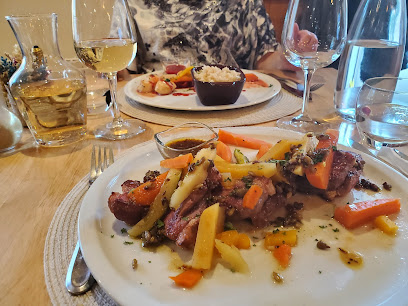
Bar Le Rustique
Discover the vibrant atmosphere of Bar Le Rustique, a quintessential bar in Saint-Pierre, offering local drinks and a friendly ambiance for travelers.
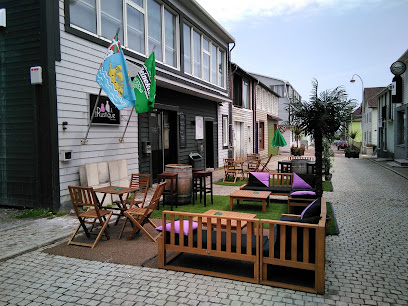
Le Select
Discover the flavors of St. Pierre at Le Select, where local ingredients meet French culinary traditions in an inviting atmosphere.
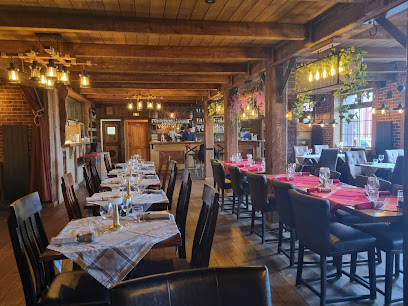
Café de la gare
Discover the flavors of Saint-Pierre at Café de la Gare, where local ingredients meet a cozy atmosphere for a memorable dining experience.
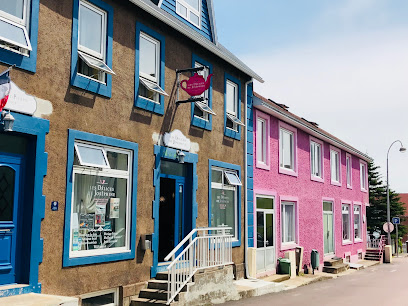
Snack Bar-to-Choice
Experience the authentic flavors of Miquelon at Snack Bar-to-Choice, a cozy restaurant offering local culinary delights.
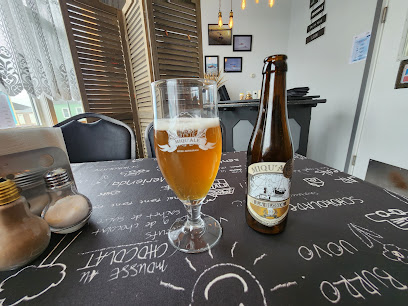
Nuits Saint-Pierre, Hôtel Unique
Discover comfort and charm at Nuits Saint-Pierre, your unique hotel in the heart of St. Pierre & Miquelon, perfect for travelers seeking an authentic experience.
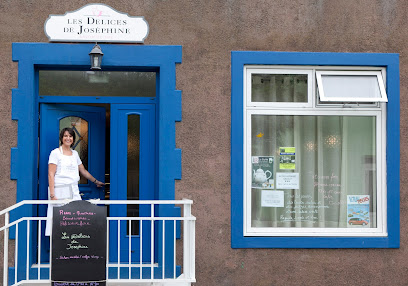
2 Lapins
Experience the flavors of St. Pierre at 2 Lapins, where local cuisine meets warm hospitality in a cozy atmosphere.
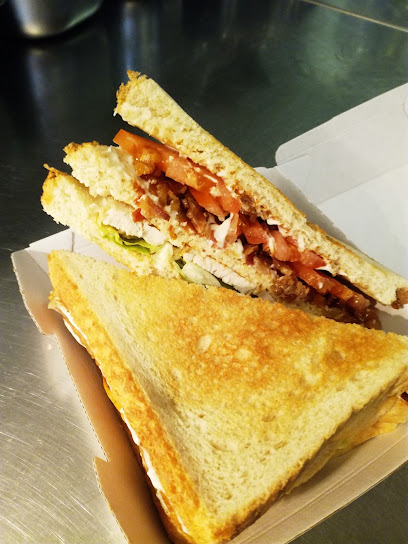
Entre Nous Restaurant
Experience the best of French cuisine and vibrant nightlife at Entre Nous Restaurant in Miquelon, a must-visit for culinary enthusiasts.
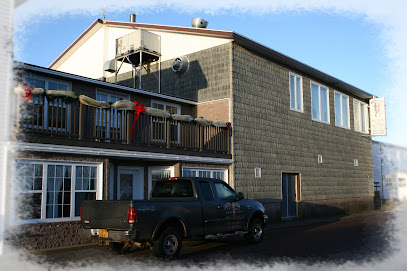
Chez Txetxo
Experience the vibrant atmosphere and local flavors of Chez Txetxo, a charming bar in Saint-Pierre, St. Pierre & Miquelon.
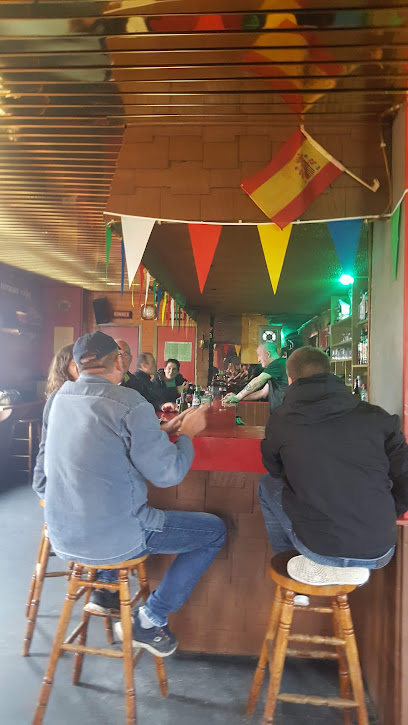
Le Bar à Quai
Discover the flavors of St. Pierre & Miquelon at Le Bar à Quai, where seafood and local delicacies come together in a cozy atmosphere.
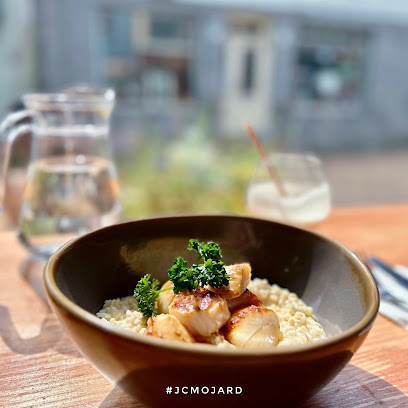
Le Baratin
Discover the vibrant atmosphere of Le Baratin, a cozy bar in Saint-Pierre offering local drinks and a taste of St. Pierre & Miquelon's culture.

Chez Janot
Unwind at Chez Janot, a charming bar in St. Pierre & Miquelon, where locals and tourists enjoy delightful drinks in a cozy atmosphere.
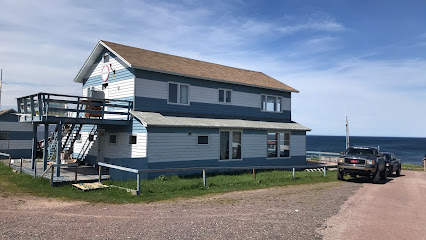
L'Essentiel
Discover the cozy charm of L'Essentiel, a delightful cafe in Saint-Pierre offering artisanal treats and an inviting atmosphere.
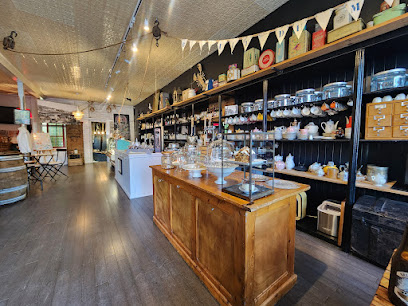
Roc Café
Experience the charm of Roc Café in Saint-Pierre, where delicious coffee and cozy vibes create the perfect retreat for tourists.
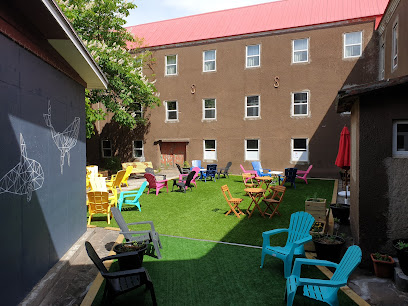
Local Phrases
-
- HelloBonjour
[Bon-zhoor] - GoodbyeAu revoir
[Oh reh-vwar] - YesOui
[Wee] - NoNon
[Non] - Please/You're welcomeS'il vous plaît
[Seel voo pleh] - Thank youMerci
[Mehr-see] - Excuse me/SorryPardon
[Par-dohn] - How are you?Comment ça va?
[Koh-mohn sah vah?] - Fine. And you?Bien. Et vous?
[Byen. Ay voo] - Do you speak English?Parlez-vous anglais?
[Par-lay voo ahn-glay] - I don't understandJe ne comprends pas
[Zhuh nuh kohm-prahnd pah]
- HelloBonjour
-
- I'd like to see the menu, pleaseJe voudrais voir le menu, s'il vous plaît
[Zhuh voo-dray vwahr luh men-oo, seel voo pleh] - I don't eat meatJe ne mange pas de viande
[Zhuh nuh mahnzh pah duh vyand] - Cheers!Santé!
[Sahn-tay] - I would like to pay, pleaseJe voudrais payer, s'il vous plaît
[Zhuh voo-dray pay-ay, seel voo pleh]
- I'd like to see the menu, pleaseJe voudrais voir le menu, s'il vous plaît
-
- Help!Au secours!
[Oh seh-koor] - Go away!Allez-vous en!
[Ah-lay voo ahn] - Call the Police!Appelez la police!
[Ah-peh-lay lah poh-lees] - Call a doctor!Appelez un médecin!
[Ah-peh-lay uh may-deh-sahn] - I'm lostJe suis perdu
[Zhuh swee pair-doo] - I'm illJe suis malade
[Zhuh swee mah-lahd]
- Help!Au secours!
-
- I'd like to buy...Je voudrais acheter...
[Zhuh voo-dray ah-shet-ay] - I'm just lookingJe regarde juste
[Zhuh ruh-gard zhuhst] - How much is it?Combien ça coûte?
[Kohm-byen sah koot] - That's too expensiveC'est trop cher
[Say troh shair] - Can you lower the price?Pouvez-vous baisser le prix?
[Poo-vay voo bay-say luh pree]
- I'd like to buy...Je voudrais acheter...
-
- What time is it?Quelle heure est-il?
[Kell ur ay-teel] - It's one o'clockIl est une heure
[Eel ay oon ur] - Half past (10)Dix et demie
[Dees ay duh-mee] - MorningMatin
[Mah-tan] - AfternoonAprès-midi
[Ah-pray mee-dee] - EveningSoir
[Swahr] - YesterdayHier
[Yehr] - TodayAujourd'hui
[Oh-zhoor-dwee] - TomorrowDemain
[Duh-mahn] - 1Un
[Uhn] - 2Deux
[Duh] - 3Trois
[Twa] - 4Quatre
[Kat] - 5Cinq
[Sank] - 6Six
[Sees] - 7Sept
[Set] - 8Huit
[Wheat] - 9Neuf
[Nuhf] - 10Dix
[Dees]
- What time is it?Quelle heure est-il?
-
- Where's a/the...?Où est le...
[Oo ay luh...] - What's the address?Quelle est l'adresse?
[Kell ay lah-dress] - Can you show me (on the map)?Pouvez-vous me montrer (sur la carte)?
[Poo-vay voo muh mohn-tray (sir lah kart)] - When's the next (bus)?Quand est le prochain (bus)?
[Kond ay luh proh-shahn (bus)] - A ticket (to ....)Un billet (pour ....)
[Uhn bee-yay (poor)]
- Where's a/the...?Où est le...
History of Miquelon
-
Long before European explorers arrived, the islands of Saint Pierre and Miquelon were inhabited by Indigenous peoples, likely the Mi'kmaq. Their presence is evidenced by archaeological findings, including tools and remnants of their settlements. These early inhabitants relied heavily on the rich marine life for sustenance.
-
The islands were first recorded by European explorers in 1520 when Portuguese sailor João Álvares Fagundes charted them. However, it was the French who established the first permanent settlements in the 17th century, using the islands primarily as a base for cod fishing.
-
During the 17th and 18th centuries, Miquelon became a critical hub for the cod fishing industry. French fishermen from Brittany and Normandy flocked to the islands, setting up seasonal fishing camps. This period saw the construction of numerous fishing stages, salting houses, and drying racks.
-
Saint Pierre and Miquelon changed hands multiple times between the French and the British from the late 17th century through the early 19th century. The islands were ceded to the British in the Treaty of Utrecht in 1713, returned to France in 1763, and briefly occupied by the British again during the Napoleonic Wars.
-
During the American Prohibition era (1920-1933), Saint Pierre and Miquelon played a significant role in the smuggling of alcohol into the United States. The islands' economy boomed as warehouses filled with Canadian whiskey, French wine, and other spirits awaiting clandestine transport to the U.S. mainland.
-
In 1941, during World War II, the islands were a point of contention between Vichy France and Free France. Admiral Émile Muselier, leading Free French naval forces, took control of the islands, aligning them with Charles de Gaulle's Free French government. This move was critical for de Gaulle's legitimacy.
-
Post-World War II, Saint Pierre and Miquelon faced economic challenges as the cod fishing industry declined. The islands have since diversified their economy, focusing on tourism, fish farming, and the service sector. The islands remain a unique blend of French and North American cultures, preserving their rich history while adapting to modern realities.
Miquelon Essentials
-
Miquelon is part of the Saint Pierre and Miquelon archipelago located in the North Atlantic Ocean. The most common way to reach Miquelon is by taking a flight from Canada. Air Saint-Pierre offers regular flights from St. John's, Halifax, and Montreal to Saint-Pierre, the main island. From Saint-Pierre, you can take a ferry to Miquelon, which operates multiple times a week. Alternatively, during the summer months, there are direct ferry services from Fortune, Newfoundland to Saint-Pierre.
-
Miquelon is a small island, making it easy to explore on foot or by bicycle. For those preferring motorized transport, rental cars and taxis are available. There is a limited public transport system, so renting a car might be the best option for exploring the island at your own pace. Additionally, guided tours are available for those looking to learn more about the island's history and natural beauty.
-
The official currency of Saint Pierre and Miquelon is the Euro (EUR). Credit cards are widely accepted in hotels, restaurants, and shops, but it is recommended to carry some cash for smaller establishments and markets. ATMs are available on the island, but it is advisable to withdraw sufficient cash beforehand to avoid any inconvenience.
-
Miquelon is generally a safe destination with low crime rates. However, standard safety precautions should still be observed. Avoid walking alone at night in secluded areas and keep an eye on your belongings in crowded places. There are no specific high-crime areas targeting tourists, but it is always best to stay vigilant and aware of your surroundings.
-
In case of emergency, dial 17 for police assistance, 18 for fire services, and 15 for medical emergencies. The island has a medical center to handle health issues, but for severe cases, transfers to Saint-Pierre or even Canada might be necessary. It is recommended to have travel insurance that covers medical emergencies and repatriation.
-
Fashion: Do dress comfortably and appropriately for the weather. Layers are recommended due to the island's variable climate. Religion: Do respect local customs and traditions; while Miquelon is not particularly religious, modest clothing is appreciated in certain settings. Public Transport: Do be courteous to drivers and fellow passengers; public transport is limited, so plan accordingly. Greetings: Do greet locals with a friendly 'Bonjour' and a handshake. Eating & Drinking: Do try local seafood and traditional dishes. Don’t refuse hospitality, as it is considered impolite.
-
To experience Miquelon like a local, visit the local markets and try the fresh seafood. Engage with the island's residents, who are known for their friendliness and willingness to share stories about their unique way of life. Don’t miss out on exploring the island’s natural beauty, including its beaches, hiking trails, and bird-watching spots. For a unique experience, attend local festivals and events, which provide insight into the island's culture and traditions.
Trending Landmark in Miquelon
Nearby Cities to Miquelon
-
Things To Do in Langlade
-
Things To Do in Saint-Pierre Ferry Terminal
-
Things To Do in Saint-Pierre Airport
-
Things To Do in Charlottetown
-
Things To Do in Bar Harbor
-
Things To Do in Acadia National Park
-
Things To Do in Bangor
-
Things To Do in Camden
-
Things To Do in Rockland
-
Things To Do in Waterville
-
Things To Do in Augusta
-
Things To Do in Brunswick
-
Things To Do in Lewiston
-
Things To Do in Quebec City
-
Things To Do in South Portland








